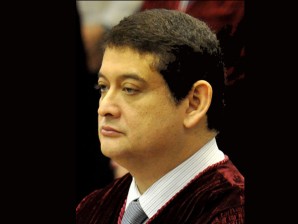MANILA, Philippines —Despite opposition, an administration senator will push anew the inclusion of casinos in the coverage of the Anti-Money Laundering Act (AMLA), citing the country’s “international obligation” to fight money laundering and terrorist financing activities.
The proposal to include casinos in the law was part of a bill that seeks to expand AMLA’s coverage but the specific provision was dropped when the measure was approved by Congress in February.
This time, however, Senator Teofisto Guingona III, co-chairman of the congressional oversight committee on the Anti-Money Laundering Law, was “hopeful” that the proposal would be passed in the next Congress.
Guingona said they would try to address fears by industry players that casinos’ inclusion in the AMLA coverage would affect their businesses.
“We’ll listen to the industry players and see how they feel and see how they think about the anti-money laundering requirement. Maybe we can find a common ground acceptable to all,” he said in a press conference.
“We’ll try this time. I think we can ventilate some more this time because there are more industry players now and therefore we can start the hearings and see what their views are.”
“But definitely, in other countries, there is also money laundering requirements in the casinos. So we have to see how we can also comply with the requirement,” the senator pointed out.
Asked how they could get the support of oppositors like the Philippine Amusement and Gaming Corporation for instance, Guingona said: “Maybe you should ask Pagcor.”
“But again, really, as I said, a common ground might be able to be hammered out this time and acceptable to all. So let’s see,” the senator added.
But as a signatory to a treaty against money laundering, Guingona said, the Philippines is “mandated” to comply with its obligations.
“We’re all doing this in the spirit of international cooperation. So we have signed this treaty and therefore we have mandated ourselves to comply,” he said.
Guingona was also confident that President Benigno Aquino would not veto the proposed measure once Congress approves it.
“We don’t consult (the President) because we’re an independent body. But again I don’t see it being vetoed because it is in the context of our complying with our obligations under the treaty,” he said.
